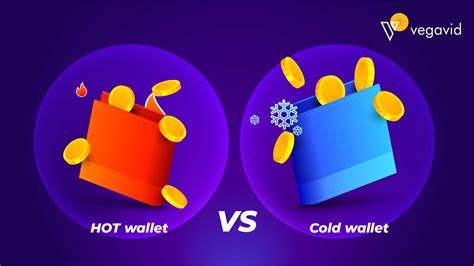Hot Wallets vs. Hardware Wallets: Which is Safer in the Cryptocurrency Market?
The rise of cryptocurrencies has given rise to a new class of digital wallets that enable users to securely store, manage, and trade their cryptocurrency holdings. Among these options are hot wallets and hardware wallets. While both have their advantages, they also come with unique risks and vulnerabilities that can compromise your wallet’s safety.
Hot Wallets
Hot wallets, also known as software wallets or desktop wallets, are digital applications that allow users to store, send, and receive cryptocurrencies using a computer or mobile device. These wallets use public-private key pairs to secure cryptocurrency transactions and provide access to the funds in case of an emergency.
Pros:
- Convenience: Hot wallets offer a seamless and user-friendly experience for managing your cryptocurrency holdings.
- Accessibility: You can access your wallet from anywhere with an internet connection, making it easy to transfer or manage funds.
- Security features
: Many hot wallets include additional security features, such as two-factor authentication (2FA) and encryption.
Cons:
- Vulnerabilities: Hot wallets are susceptible to hacking, phishing attacks, and other types of cyber threats that can compromise your private keys.
- Interoperability issues: Hot wallets may not be able to interact with each other seamlessly, leading to potential inconsistencies in transactions or balances.
- Lack of transparency: Some hot wallets may have unclear or misleading terms of service, making it difficult for users to understand their rights and responsibilities.
Hardware Wallets

Hardware wallets, also known as offline wallets or physical wallets, are devices that store your cryptocurrency private keys securely on a separate hardware device from the internet. These wallets are designed to protect your funds in case an attack occurs while using a hot wallet.
Pros:
- Security: Hardware wallets provide a robust layer of security by storing your private keys offline and only allowing access through a PIN or other authentication methods.
- Interoperability: Hardware wallets can interact seamlessly with each other, ensuring that transactions are processed correctly and without any inconsistencies.
- Transparency: Many hardware wallet manufacturers clearly outline their terms of service, making it easier for users to understand their rights and responsibilities.
Cons:
- Cost: Hardware wallets are often more expensive than hot wallets, especially high-end models with advanced security features.
- Limited functionality: You can only store funds on the device itself and may not be able to access them using a hot wallet or other external methods.
- Limited accessibility: Users must physically carry their hardware wallet, making it less convenient for those who don’t have access to a computer or mobile device.
Which is Safer?
While both hot wallets and hardware wallets offer robust security features, hardware wallets are generally considered safer in the long run. Here’s why:
- Private keys remain offline: Hardware wallets store your private keys securely on the device itself, reducing the risk of being compromised by hacking or other cyber threats.
- Limited access points: You have limited access to your funds through a hot wallet or other external methods, making it harder for attackers to gain control.
- Interoperability is secure: Hardware wallets can interact seamlessly with each other and other devices, ensuring that transactions are processed correctly without any inconsistencies.
That being said, there are some scenarios where a hot wallet might be safer:
- Emergency funding: If you need access to funds quickly for an emergency reason (e.g.
Leave a Reply